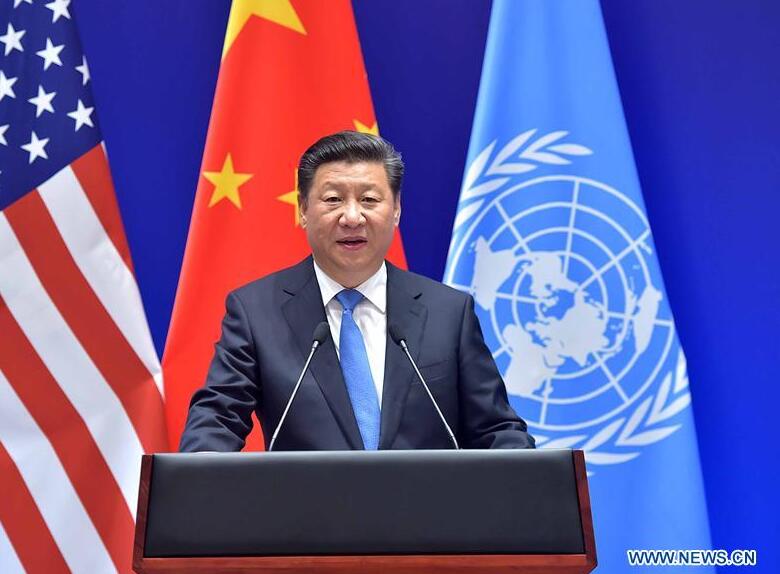China's ecological progress after the 18th CPC National Congress
 |
Chinese President Xi Jinping speaks on the deposit of China's and the United States' instruments of joining the Paris Agreement in Hangzhou, capital city of east China's Zhejiang Province, on Sept. 3, 2016. [File photo/Xinhua] |
More contributions to the world
In 2015, China signed the Paris Agreement on climate change, providing strong impetus for the international efforts against global warming. To fulfill its commitment to the Paris climate pact, China has to cut its carbon emissions per unit of GDP by 60-65 percent by 2030 from 2005 levels, increase non-fossil fuel sources in primary energy consumption to about 20 percent, and peak its carbon emissions by 2030.
In 2016, the United Nations Environment Program (UNEP) launched the report "Green is Gold: The Strategy and Actions of China's Ecological Civilization" at the UN Environmental Assembly in Kenya. China's experiences and wisdoms on promoting ecological progress and sustainable development were introduced to other countries.